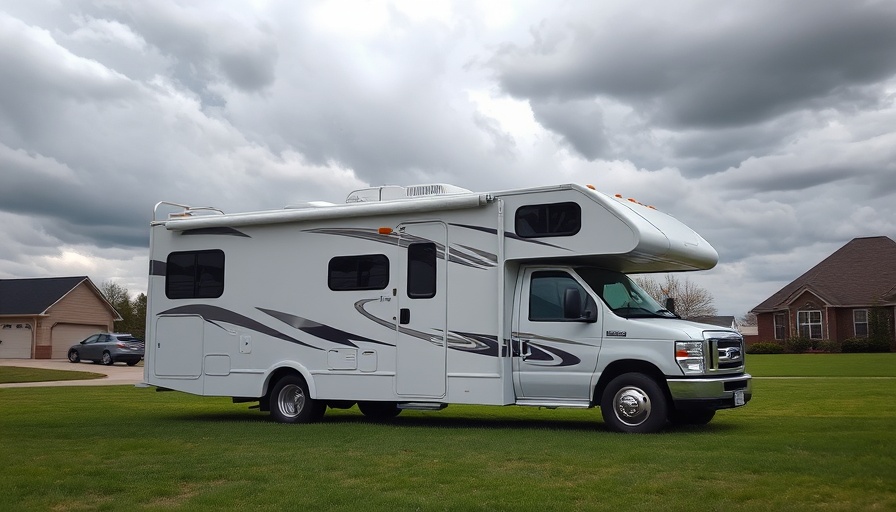
RVing During Tornado Season: Essential Insights for Safety
For full-time travelers and RV enthusiasts, living on the road offers a unique set of advantages and challenges, especially during tornado season. As the RV lifestyle gains popularity, understanding how to navigate severe weather conditions becomes increasingly vital. This is especially true for those who travel through Tornado Alley during the spring months. Here’s a guide to help you prepare for and stay safe during tornado season.
Understanding Tornado Risks and Timing
Tornadoes typically occur during the spring, peaking in April and May, but they can also strike unexpectedly in other months. States such as Texas, Oklahoma, and Kansas are infamous hotspots for tornado activity, with neighboring states like Arkansas and Missouri also at risk. If your travel plans can be adjusted, consider rerouting during these critical months to enhance your safety.
The Dangers of Staying in RVs
It’s crucial to recognize that RVs are not safe shelters during tornadoes. According to data from NOAA, a staggering percentage of tornado fatalities occur in mobile homes and RVs—44% between 1998 and 2007—despite the fact that only 6% of the U.S. population lives in such structures. Therefore, if you find yourself in a tornado warning area, seeking sturdy shelter should be your immediate priority.
Proactive Preparations for RV Travelers
The Importance of Route Planning
Should your journey take you through Tornado Alley, flexible itinerary planning is essential. Being able to stay longer in a safe location can prevent exposure to unexpected storms. Past experiences have taught many seasoned RV travelers the value of adjusting their route based on weather forecasts.
Building a Complete Emergency Kit
Prepare an emergency kit, often referred to as a "bug out" bag, containing essentials. This bag should include items critical for storm survival—such as a weather radio, first aid supplies, a flashlight, extra phone batteries, important documents, medications, water, and non-perishable snacks. Keeping this easily accessible enhances your readiness for emergencies.
Understanding Weather Warning Systems
Familiarizing yourself with tornado warning systems is key to staying prepared. Knowing the difference between a tornado watch and a warning can give you the critical time needed to act. A watch means conditions are favorable for tornadoes, while a warning indicates that a tornado has been sighted or indicated on radar. Ignoring these alerts can significantly jeopardize your safety.
Weather Awareness: Stay Informed
Maintain awareness of weather alerts and conditions through apps or local news channels, especially when traveling in at-risk areas. Many RV parks and campgrounds provide information regarding local weather patterns, reinforcing the importance of staying connected while on the move.
Embracing Community Insights
Connect with fellow RV travelers who share their experiences and tactics for dealing with severe weather. Online forums and local RV associations can provide valuable insights, built on collective wisdom. The RV community is robust and often shares safety tips tailored to specific regions and conditions.
Your Safety Is Paramount
While the thrill of RVing during tornado season can be exhilarating, prioritizing safety is crucial. Engage with local weather forecasts, devise flexible travel plans, and remain informed. The RV lifestyle offers great adventures, but it also requires preparation and respect for nature's unpredictability. Ensure your travels remain enjoyable by planning for the unexpected.
 Add Row
Add Row  Add
Add 




Write A Comment